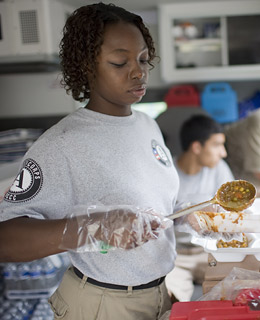
Here's an idea that could have helped mitigate America's worst recent disasters — the messy occupation of Iraq and the botched response to Hurricane Katrina — while allowing people from various walks of life to serve our nation and the world: a Civilian Reserve Corps. It would be made up of engineers, doctors, judges, construction workers, teachers and others who could be deployed to restore stability in troubled areas. They could help get hospitals, schools, financial markets, utilities and courts up and running in post-invasion theaters like Iraq and Afghanistan. They could drill wells and build roads in fragile states such as Somalia. They could restore infrastructure after a tsunami in Asia — or a hurricane at home.
The need for a Civilian Reserve Corps — a version of which has been proposed by Senator Richard Lugar — became apparent after the invasion of Iraq, when untrained political appointees were tapped to become part of the Coalition Provisional Authority. They made a hash of restoring civil order and soon quit in large numbers, leaving behind a disaster that haunts us to this day. Since then, the Defense Department has increasingly focused on providing humanitarian and civic assistance in counterinsurgency situations. But as Reuben Brigety, a former Navy officer who is now a defense-policy analyst, points out in a report for the Center for American Progress, civilians can generally perform elements of this mission better and cheaper. He cites the example of a Navy Seabee detachment working around the clock to dig wells in two villages in Kenya; it cost them $250,000 to do a job that civilian workers generally do for $10,000, and the wells ended up not working.
Katrina's aftermath showed how a Civilian Reserve Corps could be valuable domestically too. I was involved in enlisting people to restart the school system in New Orleans. Because Teach for America had been working for years in the region, there was a corps of alumni who responded to the call and helped to start and staff new charter schools. But there was no comparable corps to help revive the hospitals, courts, mental-health system or other community functions. Unlike the Peace Corps, the Civilian Reserve Corps would not be a full-time commitment. Instead, it would be akin to the military reserves. Americans of all ages willing to train part-time would likely leap at the chance to become proud enlistees and to remind the world what type of people we really can be.
Isaacson is the CEO of the Aspen Institute